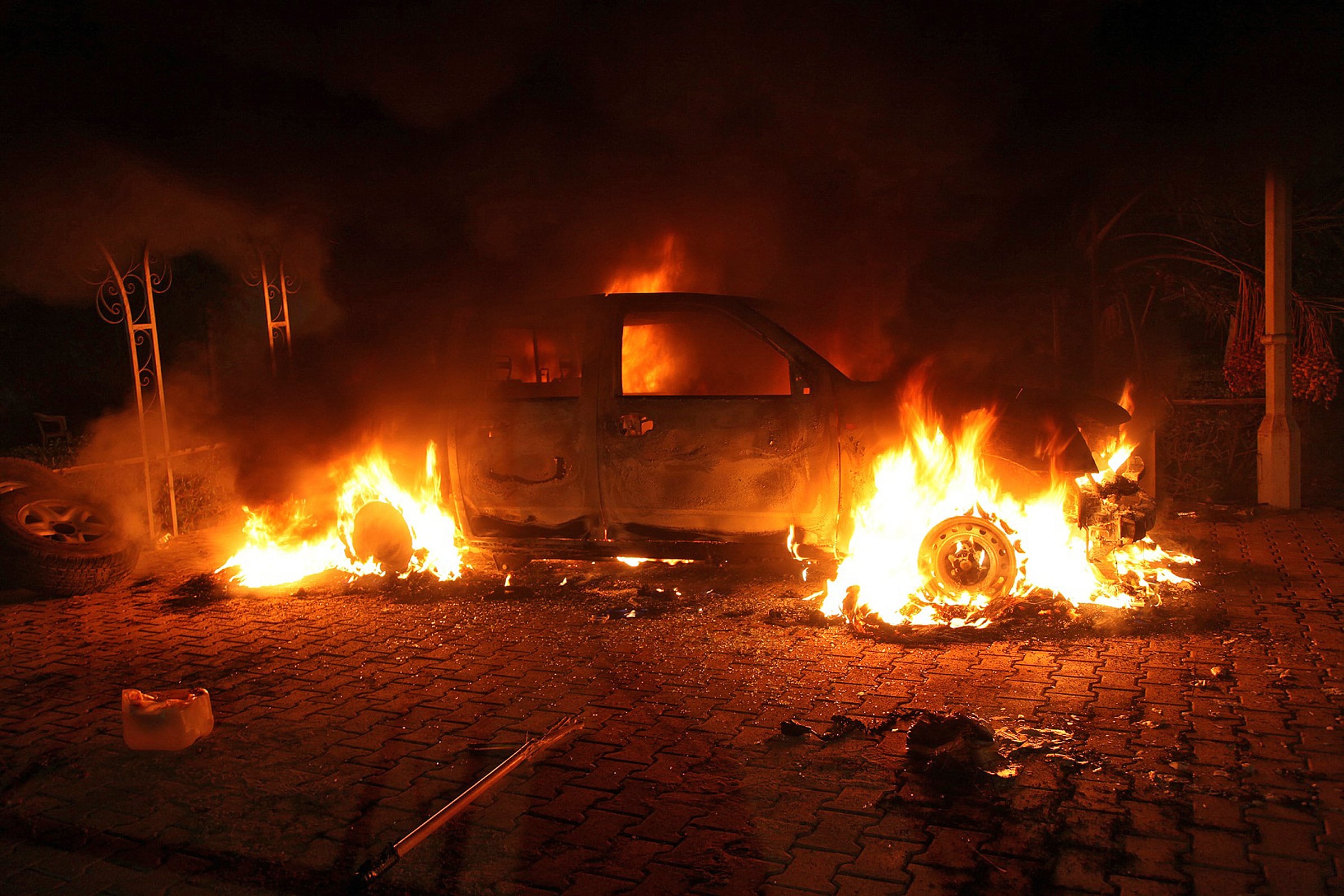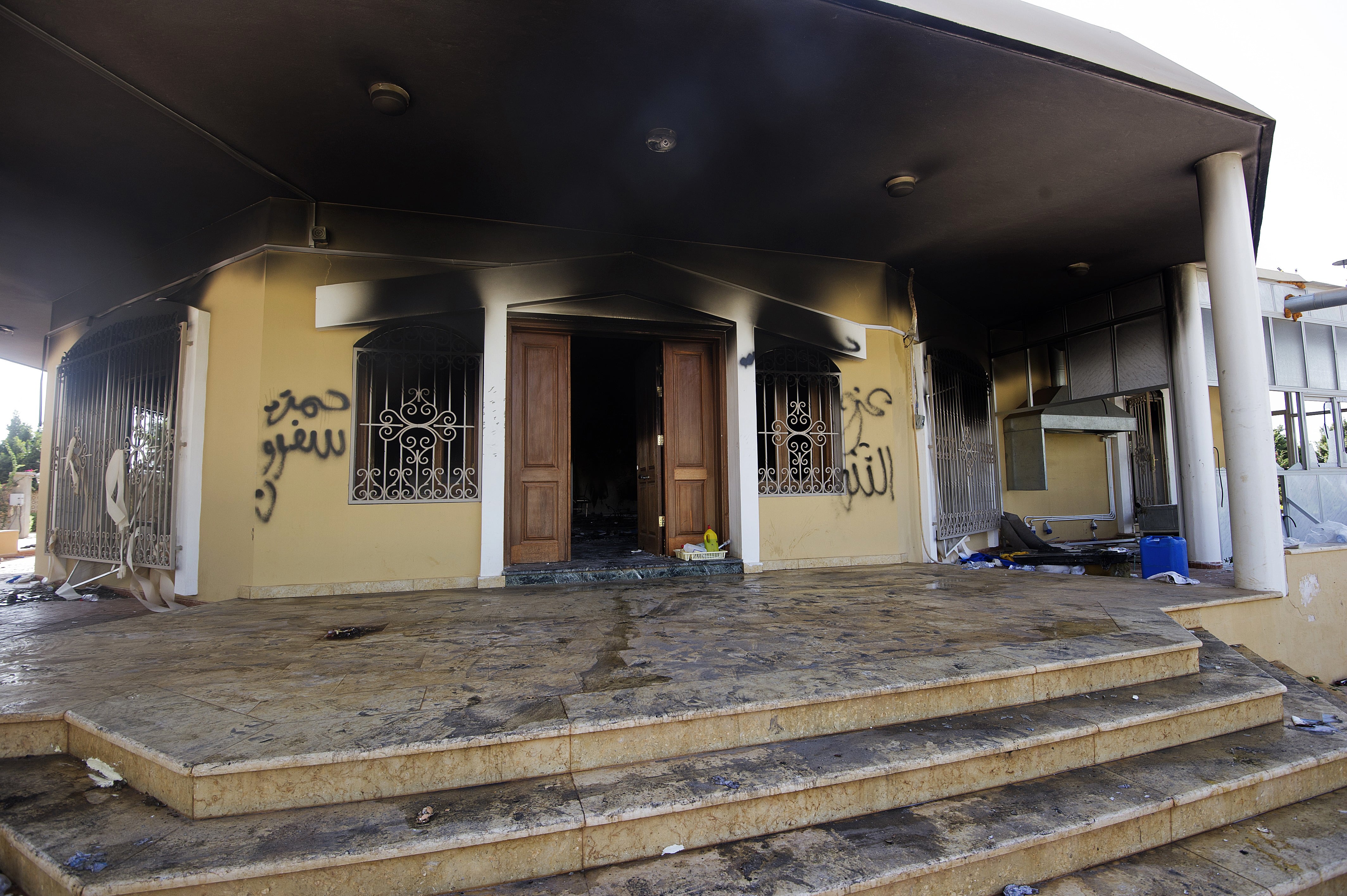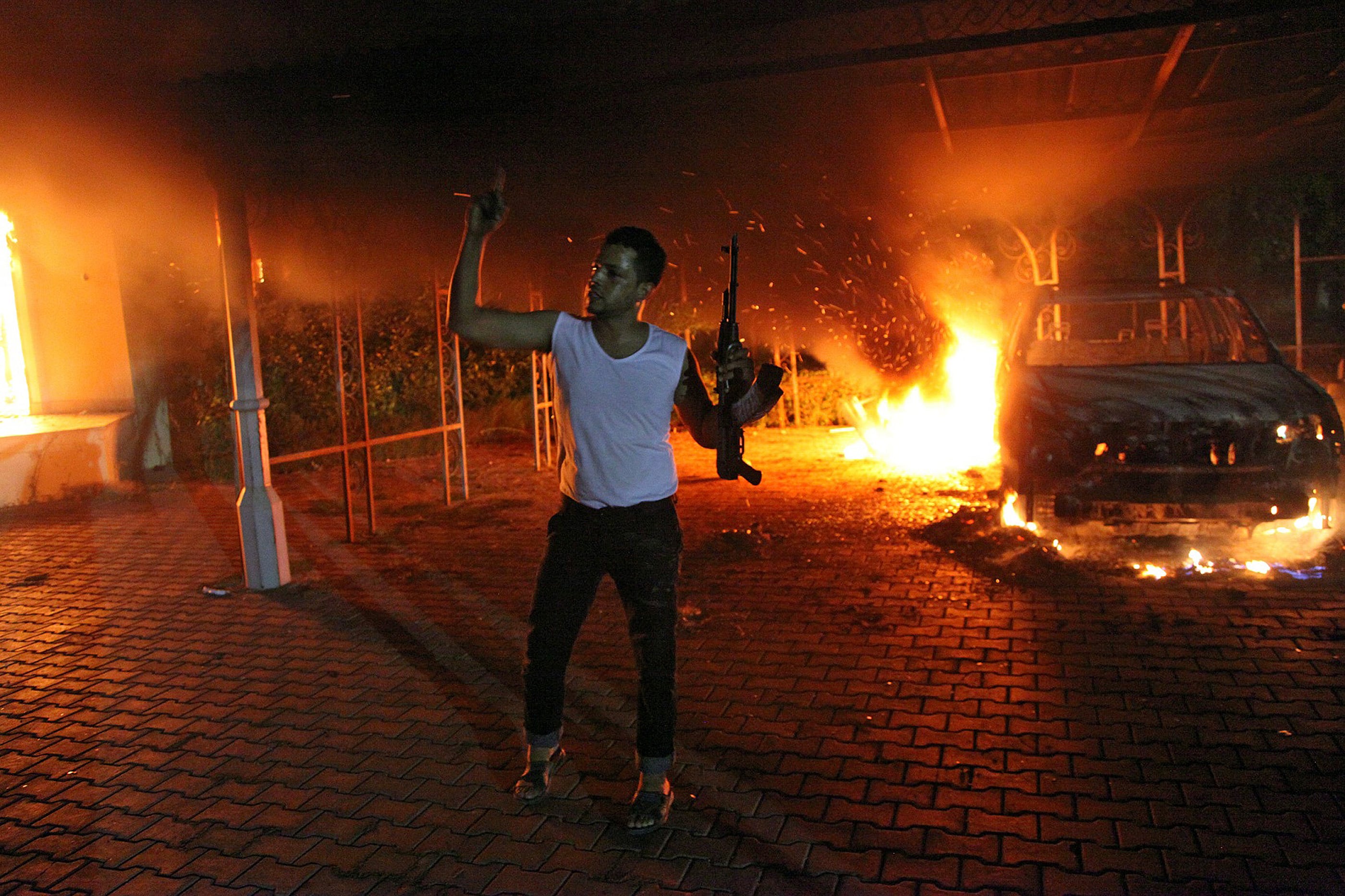Spain-based Marines trying to respond to the Sept. 11, 2012, attack on a U.S. diplomatic post in Benghazi, Libya, were delayed for three hours as U.S. government officials debated whether they should wear their uniforms and carry weapons, according to Tuesday's report from the House Benghazi Committee.
The platoon commander of a fleet anti-terrorism security team, which can be dispatched to embassies and consulates in times of crises, told the committee that his Marines changed into and out of their uniforms four times on the plane before taking off for Libya, the report states.
The team did not arrive there in Libya until 23 hours after the Sept. 11, 2012, attacks that killed four Americans, including U.S. Ambassador J. Christopher Stevens.
"We were told multiple times to change what we were wearing, to change from cammies into civilian attire, civilian attire into cammies, cammies into civilian attire," the platoon commander, who was not identified, told the committee. "There was also some talk of whether or not we could carry our personal weapons.
"I was basically holding hard and fast to the point where we were carrying our personal weapons. Like, we've got a very violent thing going on the ground where we're going, so we're going to be carrying something that can protect ourselves. But as far as what the Marines were wearing, that continually changed, and we had to make those changes inside of the aircraft."

A vehicle and the surrounding area are engulfed in flames after it was set on fire inside the U.S. consulate compound in Benghazi, Libya, on Sept. 11, 2012. Four Americans were killed in the attack on the diplomatic post.
Photo Credit: AFP
The In Rota, Spain, the FAST Marines, who were based out of Rota, Spain, were ready to leave for Libya at 5:45 a.m. local time the morning after the attack on Sept. 12, 2012, the team's platoon commander told the committee. The Marines waited six hours for Air Force C-130s to arrive in Spain, but then they were delayed on the ground. Rota is about 2,000 miles from Benghazi.
The report, which was issued by Republican members of the committee, states that the uniform issue "The issue of military attire versus civilian clothes illustrated no one seemed to be taking charge and making final decisions." the report says.
"After the State Department request at the 7:30 p.m. White House meeting, the Defense Department began working the issue," the report says. "Documents from the Defense Department show, and the FAST Platoon Commander testified it was well into the next afternoon on September 12th before the final decision was made. He testified further the Marines changed in and out of uniform and civilian clothes several times because the orders kept changing."

A building at the U.S. consulate compound in Benghazi, Libya, stands burnt after the Sept. 11, 2012, attack there. Marines responding to the attack were delayed by debates about whether they should wear uniforms or carry weapons, the commander told a committee investigating the attack.
Photo Credit: GIANLUIGI GUERCIA, AFP/Getty Images
Patrick Kennedy, the State Department's undersecretary for management, requested that the FAST Marines wear civilian attire instead of their Marine uniforms during a White House meeting, the report says. Kennedy told the committee that the move was meant to "enhance the security of our personnel."
"They wanted to minimize the signature that looked like a big military invasion, a big military arrival there," Vice Adm.iral Kurt Tidd, then director of operations for the Joint Chiefs of Staff, told the committee.
State Department spokesman Mark Toner said the debate over whether the FAST Marines should be in uniform did not affect the U.S. government's ability to send help to Benghazi.
"The fact is, we did not cause a delay," Toner said on Tuesday. "We received diplomatic clearance, as is standard, to send a flight into Tripoli to evacuate our personnel. The process of gaining clearance did not delay or cancel any asset going to Libya.
"Furthermore, we deployed a Marine FAST team to Tripoli after the attacks. Concerns about what they wore had no bearing on the timing of their arrival."
Since the Benghazi attacks, the Defense Department has made "substantial changes" to improve how it responses to crises, said department spokesman Gordon Trowbridge on Tuesday. Defense Department spokesman Gordon Trowbridge said he was not aware of any information indicating the uniform issue affected the FAST Marines' response time. He also said the Defense Department has made "substantial changes" to improve how it responds to crises in the wake of Benghazi.
"The U.S. military posture has been adjusted to increase Marine security guards at a number of sites, to better align the Marine security mission for protection of diplomatic facilities and personnel, and to add a special purpose Marine air-ground task force to regional response forces, among other capabilities," Trowbridge said.
But the Benghazi committee report raises questions about just how quickly the military can move, noting that by the time then-Defense Secretary Leon Panetta ordered the FAST platoon to deploy, Stevens was missing and another American, Sean Smith, was dead.
"The fact that nearly 24 twenty-four hours elapsed until those forces actually arrived in Tripoli to reinforce the security there belies the expectations of the American people that the U.S. military can and will move expeditiously," the report says.





